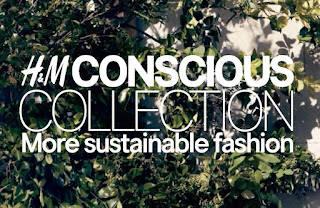A guide to ethical jewelry
Ethical jewelry is something that we should be thinking about when it comes to sustainable fashion. So many of us wear necklaces, rings, and earrings as staples in our everyday wardrobe, yet we don’t always think about what the jewelry we’re wearing has on the environment. Keep reading to learn more about what ethical jewelry is and what brands to support.
A BREAKDOWN
Ethical jewelry is jewelry that’s been sourced and produced ethically. Brands that produce ethically made jewelry are typically transparent about their production methods and how their metals/gems are sourced. Creating ethical jewelry is a pretty complicated process with lots of room for error, so it’s important to do your research on specific companies and their production methods.
PRODUCTION OF JEWELRY
Jewelry production starts with mining for natural materials like diamonds or gold/silver. These mines can cause a whole myriad of problems, such as massive damage to the environment, water and air pollution, greenhouse gas emissions, and more. But it’s more than just environmental impacts, entire communities can be uprooted to set up mines for these materials.
Once it’s mined, the materials get sent to factories across the world for jewelry production. Production can have horrible working conditions with gemstone dust and chemicals, and often use child labor. Makes you think twice about the $2 ring you got from Shein.
Reflective Jewelry has a really informative and helpful video about ethical jewelry that I highly recommend watching. You can watch it here.
ETHICAL OPTIONS
When you think about ethical jewelry, there’s a few different types of factors you can think of:
Fair trade gold
Lab grown diamonds vs mined
Recycled materials
Fair Trade Gold
Fair trade gold is gold that is mined by small farmers in ethical working and environmental conditions. This gold comes directly from farmers and miners instead of large scale mines that damage the environment. The production and traceability of the gold is entirely transparent to ensure its ethical. It has to be certified by the Fair Trade organization in order to be considered fair trade.
Diamonds
Diamonds and gemstones are a hard material to find a truly ethical option. In terms of environmental sustainability, lab grown diamonds are absolutely the best option. It removes the possibility of damaged land, child labor, poor working conditions, etc. However, switching to lab grown diamonds gets rid of job opportunities for miners in underdeveloped communities. The List has a great article on the pros and cons of both lab grown diamonds and mined diamonds. The debate between them really shows how convoluted and complicated ethical jewelry can be.
Recycled Materials
I’ve said it before and I’ll say it again, recycled materials are the best way to be sustainable. Taking materials from jewelry that’s been discarded or donated and repurposing it into a new piece is ultimately one of the most sustainable ways to make jewelry. Just make sure to look into the percentage of recycled materials in the jewelry you’re buying to make sure it’s a decent amount used.
HOW DO I BUY IT?
So we know that we should be buying ethically produced jewelry, but how can we do that? Here are some suggestions that’ll help you find some beautiful pieces without the impact on the environment.
1. Buying second-hand jewelry
Just like with clothes, there’s a great market for buying jewelry second-hand. Jewelry that’s thrown away doesn’t break down in landfills but again pollutes the air and water with greenhouse gas emissions. Buying jewelry second-hand makes sure that these pieces don’t get sent to landfills and have another chance at life in your closet.
2. Ethical companies
As long as you do your research, you’re sure to find a company that produces ethical jewelry. It can be hard to find companies that are transparent about where they source their materials since there’s so many mines around the world that it’s difficult for them to pinpoint exactly where everything comes from. You’re better off buying from companies like Mejuri or Ana Luisa that use more sustainable materials in their pieces. Marie Claire has a great article on ethical jewelry brands. You can read it here.
3. Small businesses
Etsy is a great place to find ethically made jewelry. It eliminates the possibility of sweatshops when you buy handmade jewelry, they use more recycled materials, and you can find really unique pieces you won’t find anywhere else.
Next time you want to buy some rings to stack up or gold necklaces to layer, think about where you’re buying them from and the effects they could have on the environment. There’s plenty of sustainable and ethical options out there so you don’t have to compromise style for sustainability!







Comments
Post a Comment